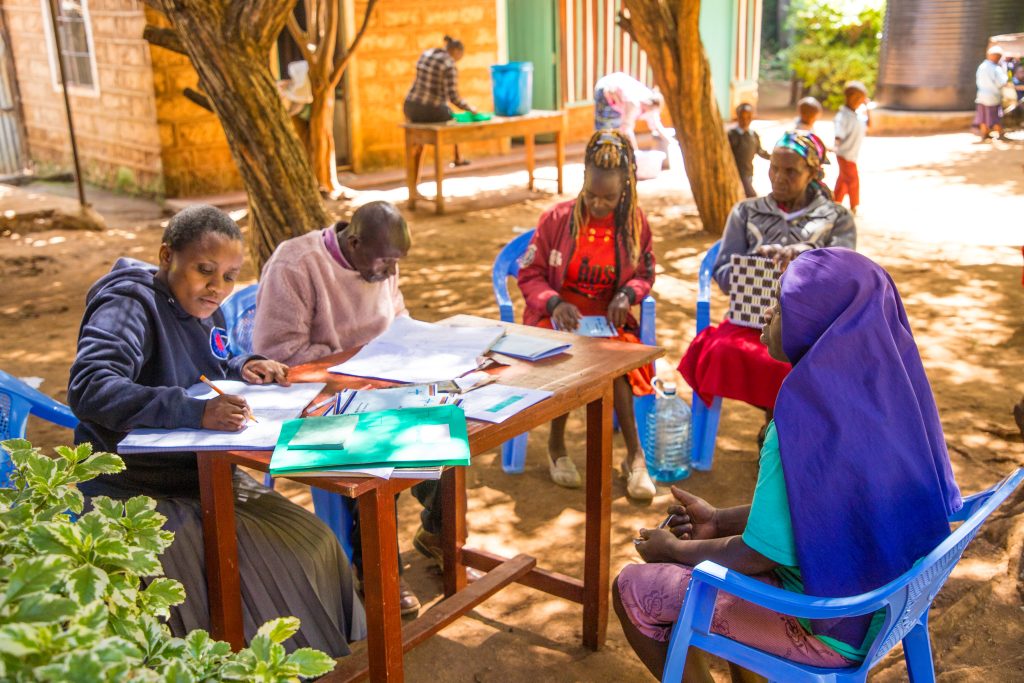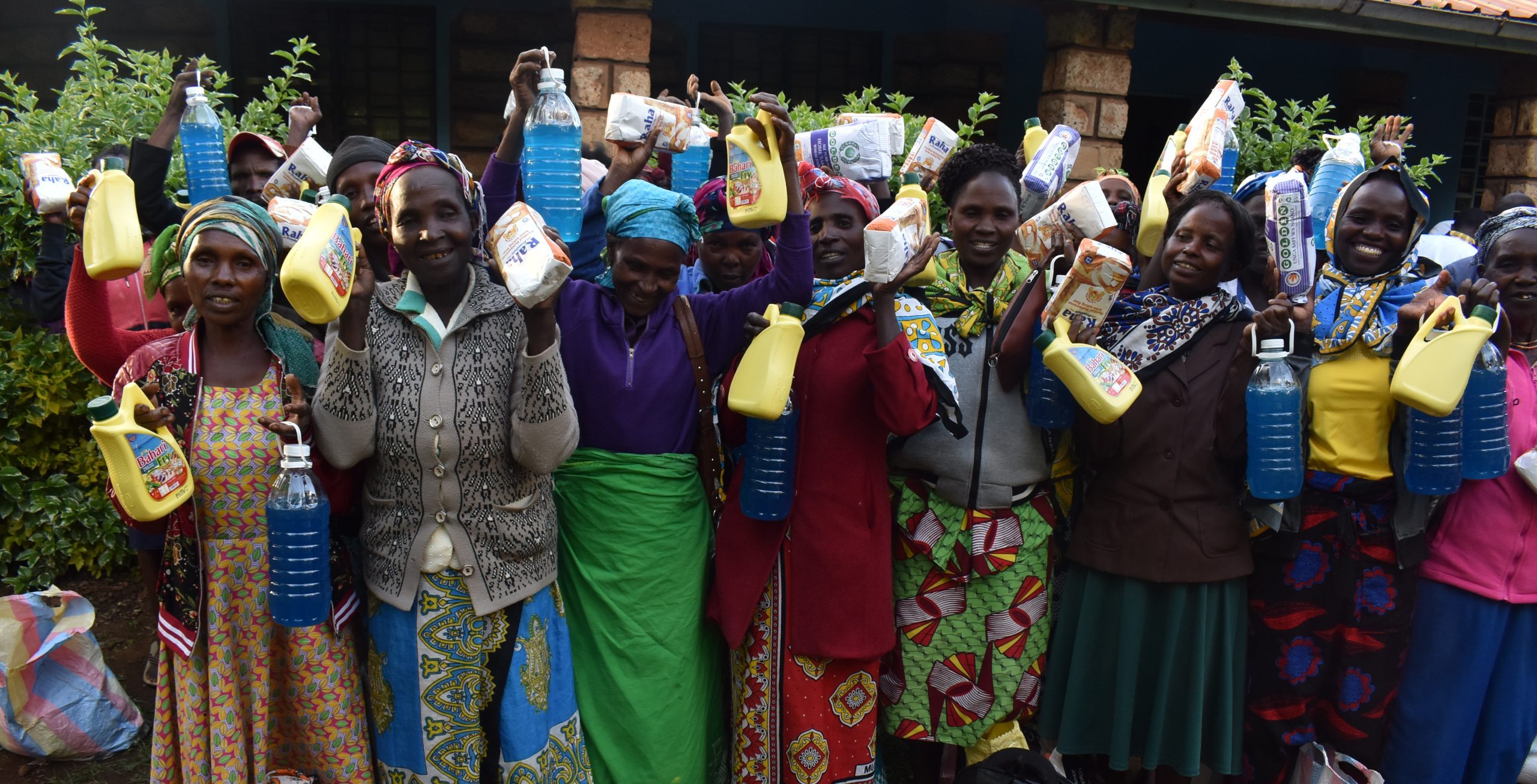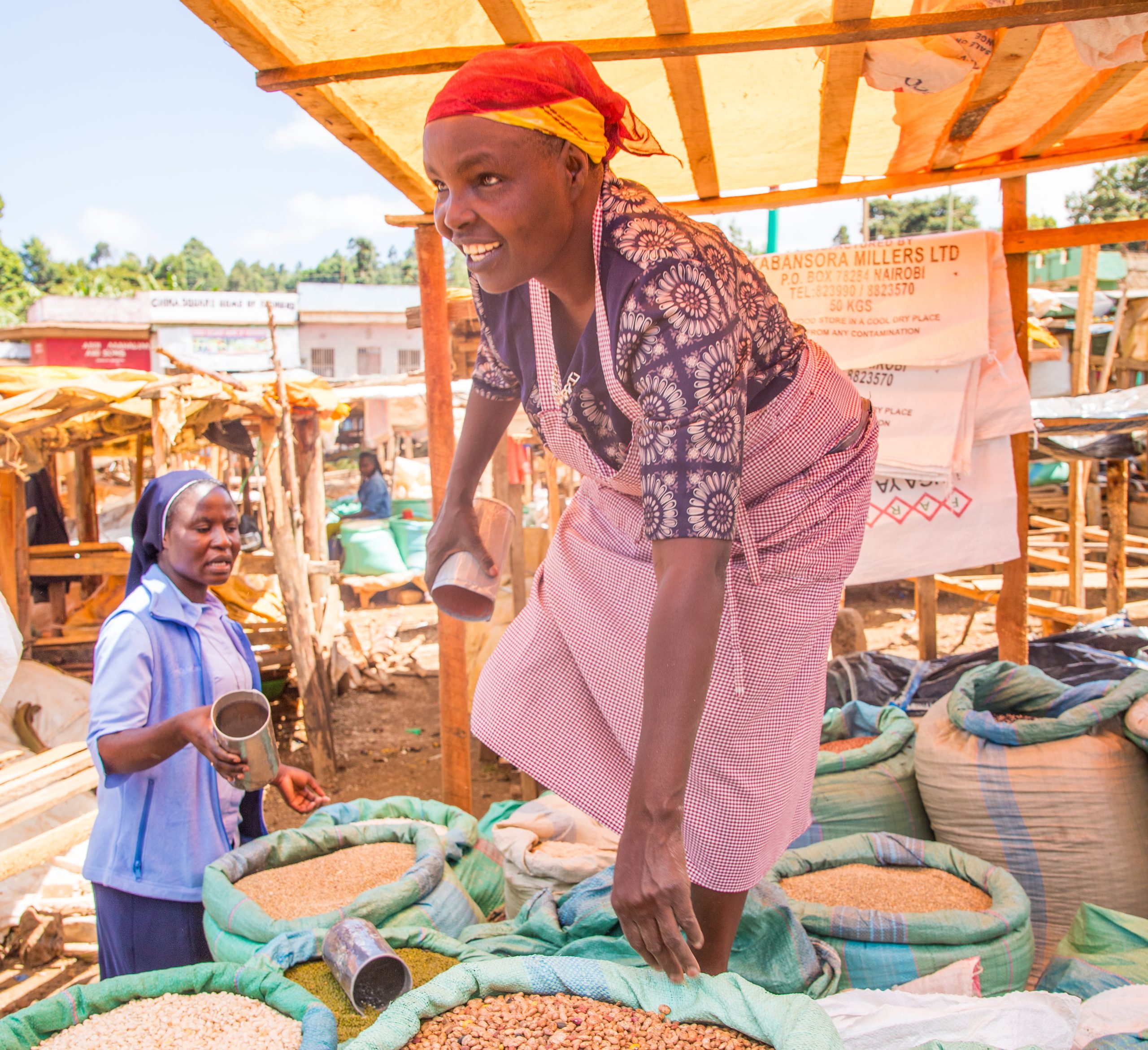Program Background

The Good Shepherd Program in Meru County was first established in 1993 as a feeding program for children at the Sisters’ residence in Kambakia. It later relocated to Shauri Moyo informal settlement in Kooje, where it introduced Early Childhood Development Education (ECDE). As demand for basic education grew, the Program partnered with Chalice in 2000, expanding its sponsorship to over 1,527 children across three sites: Kangeta (484), Kooje (516), and Tumaini (527). This partnership officially ended in March 2024, having impacted approximately 6,000 children in total.
In addition, the Program ran adult literacy classes that enabled more than 200 women to acquire reading and writing skills. Between 2022 and 2024, 186 children were enrolled in ECDE with a 98% transition rate, giving them opportunities to learn, play, and socialize.
To address poverty among beneficiary households, a socio-economic empowerment project was introduced. This initiative improved livelihood opportunities for parents and guardians of both sponsored and non-sponsored children. Through it, 66 Self-Help Groups (SHGs) were formed with about 1,523 members, nearly 90% of whom were women. The SHGs provided platforms for savings and loans, entrepreneurship training, life skills, and basic farming. After more than two decades, most groups were phased out in March 2024, and 15 new groups were established with approximately 300 women.


The St. Joseph Catholic Dispensary, a registered level-two health facility, provides primary healthcare services to residents of Kangeta and surrounding areas. In 2024, the project partnered with Strathmore University to undertake major renovations, including painting, tiling, ceiling repairs, and acquisition of new furniture, medicines, and medical equipment. Key equipment purchased included a Full Haemogram machine, blood pressure machines, glucometers, stethoscopes, pulse oximeter, thermometers, infranal weighing machines, dressing sets, and otoscopes. The dispensary also organized medical camps, making healthcare more accessible to residents in hard-to-reach areas of Meru County. These camps raised awareness on conditions such as cancer, high blood pressure, diabetes, and other communicable diseases. Overall, the improvements led to increased service delivery, with client attendance rising to 15–20 patients per day in 2024, up from an average of five patients daily in 2022 and 2023.
Key Achievements
- Improved access to pre-primary, primary and tertiary education for needy children, thereby broadening their opportunities for better livelihoods, and dignified lives.
- Improved ability to read and write among adults, thus lessening their vulnerability, and enhancing their inherent right, and dignity.
- Strengthened economic resilience among poor households through access to seed capital, affordable credit, improved savings, and transfer of technical knowledge and skills in agriculture and entrepreneurship. Majority of parents and guardians became financially literate, self-reliant, and able to support their families, including their food and nutritional needs.
- Improved access to quality healthcare by residents of Kangeta and its environs, including hard-to-reach communities as a result of medical outreaches, procurement of medical equipment, and renovation works at the Dispensary.
